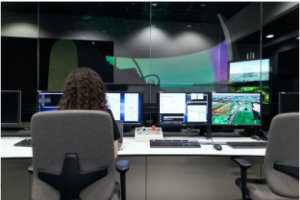Learning is the most effective way toward a fulfilled and enjoyable life because it can lead to a better comprehension of the world, and the knowledge gained can be applied to achieving your goals. An educated person will correctly see an issue and provide a suitable solution using the knowledge they’ve acquired.
But, kids often doubt the value of education throughout their lives in the hopes of figuring out what will be the value of all the information they have accumulated to be used in everyday life. They do not realize that self-advancement and learning don’t stop with the biological lesson. Instead, it’s just a part of the larger picture of education and all the benefits. A significant portion of the education and knowledge acquired in school is crucial to an enjoyable life and achieving personal goals.
Why is education so important?
There are many advantages brought about through education, mainly in the quality of a person’s life and the ease of achieving individual goals. To attain that level, you must put in an enormous amount of time and effort that is rewarded significantly. Let’s look at the most important benefits that education can bring to all those who are interested in learning and progressing in their careers:
A person who is educated has a more excellent knowledge of the world
A good education can improve their perception of the environment around their lives, making them less vulnerable to other people’s influence. The correct interpretation of information is a must because it increases understanding. A person with an education can comprehend their and other people’s roles in society and their rights. This results in a greater understanding of others at odds, fewer conflicts, and greater tolerance of different opinions.
Educated people are less likely to manipulate, which can lead to the growth of an enlightened society with more peace and less conflict. This is a good thing because it creates an environment that promotes social justice, and that includes:
- Equal rights
- Equal opportunity
- Equal treatment
The education system in society allows people to become more involved in their pursuit of improved quality of life. As citizens’ knowledge about the environment around them increases as a society, everyone strives for more effective solutions to issues and advancements in everyday life. This is a vital task for humanity as a whole, and every person must have the opportunity to grow personally and contribute their ideas.
The hard work you put into studying can lead to a more rewarding career
In terms of your career development, it is pretty straightforward – having more knowledge will guarantee a job. Candidates who have been educated for jobs that require a high degree of knowledge are in high demand in the market. Experts in their field are highly sought after because they have specific expertise, which few people have. When they do, they improve their social standing quickly, contribute more to the community, and earn more money.
It is important to invest in education in the early years so that when they graduate, the student can enjoy an enriching experience in learning and overcome all obstacles in the path to success. Education is vital since they are prepared for the job and life-related challenges of this 21st century. However, it isn’t a guarantee that getting a job will be effortless – investing in the skills and knowledge of a person should be ongoing. In this regard, education could be a continuing commitment to learning through classes or seminars and other types of personal growth.
Knowledge erases differences between people, making the background of a person’s financial situation and history less important. Knowledge is the primary resource, a fact that is widely accepted, allowing everyone to achieve success.
The education system boosts confidence in oneself
A well-educated person is aware of the world and can generally comprehend social and cultural events with ease. A high level of comprehension is a more confident attitude when working daily and interacting with others. When you are confident about yourself, it’s simpler to make good decisions and opens numerous doors.
Self-confidence makes an expert of high caliber move out of their comfort zone and take a step back to quit an income-generating job to concentrate on their work. While this type of choice may seem odd to some people, the certainty of their abilities will propel them to the end goal. These kinds of moments alter not just the individual’s life as well as the whole society. What would we have been if Thomas Edison had been unsure of his understanding?
The self-confidence that comes from knowing lets people express their opinions. It lets them explain their beliefs, and, in the event of need, they can defend their opinions. Even if the surroundings are not receptive, a confident person will not allow a fleeting judgment of the surrounding environment to influence their decision since he can demonstrate to anyone who was always right. Attaining this level involves using great expertise in communication, skills, and experience when dealing with others.
Education helps in the development of critical thinking
The process of education helps in recognizing diverse phenomena and developing an opinion on these. The accumulation of knowledge can lead to the formation of critical thought. This implies that things aren’t assumed to be taken “for granted,” and the choices are made in line with the decision-makers understanding. These behavior patterns are taught in all schools of excellence to ensure that pupils develop into intelligent individuals who can think for themselves.
Critical thinking doesn’t end with the ability to interpret external information. It extends to the correct problem-solving method. Students learn to discover the most effective solution to a particular issue. In the classroom, teachers always urge students to research their information and seek the best solution. To achieve this, it is necessary to have the knowledge and the ability to solve problems. This method leads to the best solutions, sometimes innovative solutions.
Learning can lead to a better life
The value of education in our lives is evident when we look at its direct influence on the level of quality of our lives. It is not just about the success of a career working hard and high financial status; it also includes how you spend your time. Educated individuals possess various talents that let them live life to the fullest. This is a case of things that require isn’t money but rather a mix of knowledge, desire, and determination. Perhaps someone is interested in learning how to play guitar or paint? This is all achievable with the right education and a small amount of effort.
Everything from the simplest of things is more enjoyable with an education. A show on TV or a movie can be more enjoyable if the person watching is familiar with the period, the novel that the show is inspired by, or the director’s unique style. This also enhances the interaction with friends, family, and other people.
Also, one should remember that education’s purpose is to aid the comprehension of everyday situations. A person with a solid education is more mindful of their health and will be aware of the potential risks. Self-care leads to a healthy lifestyle, leading to a higher quality of life and longer life span.
Education is the lifelong companion of every successful individual
It is better to invest your money than one in education. The world of today is well conscious of this. Education and proper training of children are among the most important priority list of issues, because:
- Children are being prepared to be fully-fledged members of society.
- The most successful chance is for those who are never satisfied with their present knowledge that is always striving to enhance their knowledge to become more effective and successful.
There are a variety of situations where good public speaking skills are in need, be it in a social or organizational setup. You might be asked to make a speech at an event or talk to a group of students. Here you can use the service StudyCrumb to see how it works in real life. In the virtual platform, speaking to an audience also includes online presentations or discussions, consulting a team, or speaking to a group of customers in an online meeting. Showing good public speaking skills helps to open up new career opportunities and build your identity in social circles as well.


